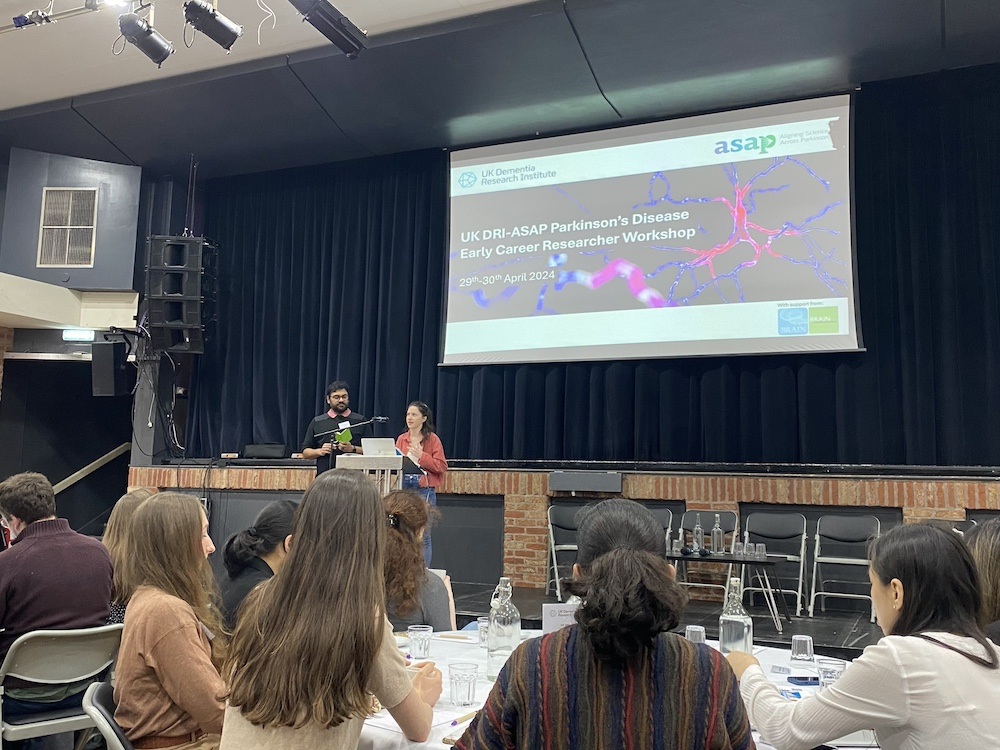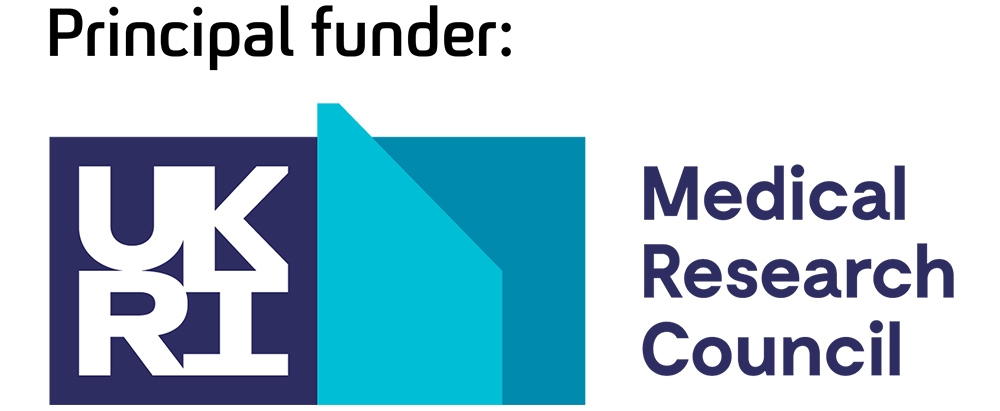Parkinson’s is the fastest growing neurological condition, with the number of people affected expected to double by 2050. Researchers across the UK DRI are tackling the condition from multiple angles, aiming to develop new diagnostic tools and treatments.
We recently co-organised an event with Aligning Science Across Parkinson’s (ASAP), bringing together nearly 100 early career researchers (ECRs) from the UK DRI and ASAP, to discuss their work, share ideas and form new collaborations. Attendees also took part in a workshop on grant writing, led by representatives from Parkinson’s UK and Alzheimer’s Research UK.
We caught up with three researchers who attended the meeting, to hear about their research, their highlights from the event and what they’re excited about in the field of Parkinson’s research.
Dr Rachel Bates is a Research Fellow at UCL, Rahul Arora is a PhD student at the University of Cambridge, and Amy Hicks is a PhD student in the Ryten lab at the UK DRI at Cambridge.
Tell us about your research, what are you working on?
Rachel: My research focuses on the role of the gut in Parkinson’s, and specifically a type of cell in the intestinal wall called enteroendocrine cells, which produce alpha synuclein. There is a hypothesis that pathology may originate in the gut and spread along the vagus nerve to the brain. I’m looking into the effects of mutations in a gene called GBA1 and how they increase risk of developing Parkinson’s.
Rahul: I am developing a computational pipeline to try and understand what happens to the gut-brain axis during ageing and in Parkinson’s. Are there aspects that are shared between Parkinson’s and healthy people, or are there unique signatures, and what can these tell us about the disease process?
Amy: I'm working on investigating genetic interactions and regulation, and how this is important in Parkinson's disease risk. My project focuses on the NSL complex, a group of proteins that are responsible for regulating transcription, the process through which DNA is copied into RNA ready to be made into a protein. Several members of the complex have been linked to Parkinson’s risk through genetic studies.
Why did you want to attend the meeting?
Rachel: I’m applying for a fellowship at the moment, so I wanted to attend the grant writing workshop. And of course, the chance to present data and get feedback from peers is always worthwhile.
Rahul: An event like this is a great opportunity to meet people at similar career stages and build connections. It’s interesting to hear what other people are doing and if they’re approaching a similar problem, but through a completely different lens.
Amy: I was looking forward to seeing the breadth of work going on across UK DRI centres and related institutions, particularly at an ECR level as I felt I could relate to this work more.
What was your highlight from the meeting?
Rachel: It was wonderful to hear from researchers all around the country who are at a similar career stage as myself. The meeting also provided the opportunity to set up some new collaborations with researchers working in similar fields.
Rahul: The grant writing was one of many highlights for me as 1-to-1 interactions with people from both the charities helped me to understand the gap in the research to put forward a strong grant application in the coming year that I have been building. Another interesting aspect was the engagement with ECRs like myself and I was able to initiate a collaboration with the UK DRI at Cardiff for another project.
Amy: I really enjoyed hearing the experiences of the lay reviewers who work with Parkinson's UK on grant reviews. Hearing their different views on what they think is important in a grant proposal was really interesting and many of their insights were things I had not thought of before.
What are you excited about in the field of Parkinson’s research at the moment?
Rachel: I am very interested in the interactions between different digestive organs and the brain. I think there is much to be learnt about how metabolic function in the gut and liver can have a huge impact on various neurodegenerative disease. A full understanding of this process could open up so many new avenues for drug development by targeting these pathways to influence brain function.
Rahul: I’m very interested in how the microbiome changes before and after diagnosis, and the impact of different therapies with respect to food, lifestyle and exercise regimes. I would like to learn more about how we could potentially incorporate nutritional therapies to improve quality of life for people living with Parkinson’s.
Amy: I am excited about increases in interest and investment in research that will come off the back of recent breakthroughs in Alzheimer's disease therapies.
To stay up to date on the latest UK DRI news and events, sign up to receive our monthly newsletter.
Article published: 29 May 2024
Banner image: Copyright UK DRI Ltd.


